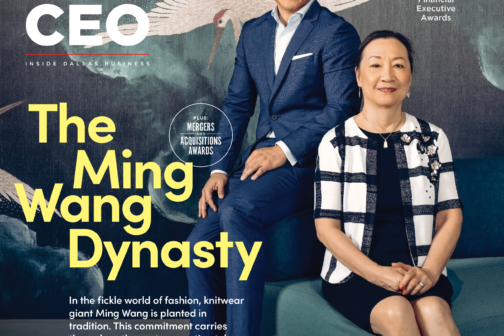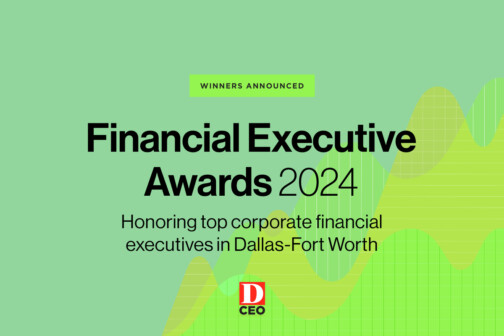Editor’s Note: Hubert Zajicek is the president and CEO of Health Wildcatters, the downtown healthcare startup accelerator that we have written about extensively. The 33rd annual JP Morgan Healthcare Conference took place earlier this week in San Francisco. The invite-only event attracts some of the industry’s most forward-thinking and influential characters. Zajicek was invited. So D Healthcare Daily asked him to write about what he saw. His report is below.
SAN FRANCISCO – The group doesn’t get smaller and the hallways don’t get any larger here in the Westin Hotel, which was sardine-packed with 10,000 attendees of JP Morgan’s annual healthcare conference in the city’s Union Square neighborhood.
And although president-elect Donald Trump was not in attendance, his presence was felt throughout the conference. His recent remarks promising the government would do a better job of having biotechnology and pharmaceutical bid on its business led people to wonder what the future holds for healthcare companies—almost immediately after giving his speech, the markets moved and the NASDAQ Biotech Index experienced a single drop of 3 percent.
This was not the only time Trump was mentioned. At the conference, people mainly discussed what an Affordable Care Act replacement plan might look like if his mandate to repeal and replace succeeds, but so far, nobody knows. The only thing that is certain is hospitals are in the process of anticipating going back to the “fee-for-service model” for the time being until they can respond to the new administration’s latest initiatives. The ACA incentivized a shift to value-based payment models, which reimbursed for outcome instead of volume.
Below are some observations from some of the sessions I got to attend. With up to eight tracks in parallel, this is nothing but a snapshot, with some anecdotal information around some of this year’s hottest topics in healthcare:
- Healthcare innovation: Despite uncertainty, most companies’ presentations showed healthcare continues to innovate. Whatever pressures may be applied to the industry, the fact is, staying healthy and living longer never goes out of style. The healthcare industry is still behind in adoption of digital health tools but the opportunities are seemingly endless.
- Disease management, artificial intelligence and population health tools: There was plenty of buzz around disease management, artificial intelligence, and population health tools, as evidenced by the standing room-only and completely overflowing room at the IBM Watson Health. Expectations are high, but real commercial success is still in its infancy. Another well attended session was by Michael O’Neil, GetWellNetwork’s dynamic and passionate founder and CEO.
- Diagnostic testing: On the Diagnostic side, both Labcorp and Quest Diagnostics reported good results, with precision medicine and genetic testing providing significant storylines. Both firms are recognizing that the healthcare consumer is becoming an increasingly important part of their clientele, as opposed to having relationships with referrers only.
- Repeal and Replacement of the ACA: The CEOs of Johnson & Johnson and Biogen verbalized some of the uncertainty around the repeal of the ACA two days before Trump’s remarks. J&J, the world’s largest pharma/device company, continues to dabble in digital health as evidenced by their Jlabs Innovation Centers around the world. Biogen is the leader in Multiple Sclerosis treatments and continues to innovate and develop new therapies.
- Diabetes: Diabetes remains a main health concern in this country and Dexcom’s presentation was particularly impressive. Given Dexcom received FDA permission to use its device to guide insulin administration, it has lots of room to grow in the continuous glucose monitoring (CGM) market. The evidence showing continuous glucose monitoring is superior to periodic glucose monitoring is particularly compelling: Dexom reported $570M in revenue, a 42 percent increase, over 2015. Fresenius, a top dialysis provider, continues to grow in the U.S. and worldwide, in parallel to diabetes, which, in many cases, leads to kidney failure and a need for dialysis.
- Hospital supplies and tools: Cardinal Health, a major supplier to hospitals, will likely see a significant impact, depending how changes under the new administration are implemented. However, Cardinal derives 85 percent of its revenues from classic fee-for-service relationships, so that should buffer any impact on contractual changes that may come along in the near future. Similarly, Qiagen, a research tool provider with a diverse set of tools, is well insulated from changes in healthcare because research tools are not likely affected by changes in the ACA.
- Hospital providers: The consolidation among large hospital providers should continue if history is a guide. This should allow for economies of scale for some of the larger ones. Community Health Systems, now a $20 billion hospital group, had a rocky year after the acquisition of Health Management Associates and its debt made it the largest hospital company for a brief time. It spent the year divesting some of its assets and is looking to turn its business around. Many of the other larger hospital systems have had a great year, but it remains a tough business, with plenty to be figured out after Inauguration day.
- Human healthcare: And if all this “human healthcare” seems to be too uncertain, then the IDEXX presentation was for you. IDEXX is a leader in pet healthcare. Pet healthcare is a (largely) cash business. Diagnostics in pet-healthcare are booming. The vast majority of baby-boomer AND millennials (hey, that’s a first here – they have something in common) regard their pets as part of their family, and are willing to forgo other expenditures to afford healthcare for their pets.




